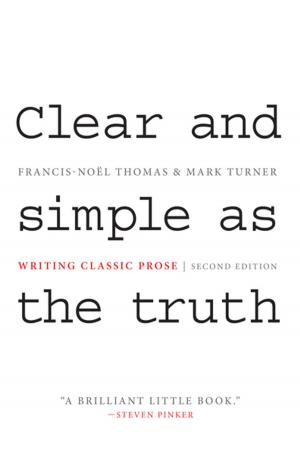The End of Theory
Financial Crises, the Failure of Economics, and the Sweep of Human Interaction
Business & Finance, Economics, Theory of Economics, Finance & Investing, Finance| Author: | Richard Bookstaber | ISBN: | 9781400884964 |
| Publisher: | Princeton University Press | Publication: | April 17, 2017 |
| Imprint: | Princeton University Press | Language: | English |
| Author: | Richard Bookstaber |
| ISBN: | 9781400884964 |
| Publisher: | Princeton University Press |
| Publication: | April 17, 2017 |
| Imprint: | Princeton University Press |
| Language: | English |
An in-depth look at how to account for the human complexities at the heart of today's financial system
Our economy may have recovered from the Great Recession—but not our economics. In The End of Theory, Richard Bookstaber discusses why the human condition and the radical uncertainty of our world renders the standard economic model—and the theory behind it—useless for dealing with financial crises. What model should replace it? None. At least not any version we've been using for the past two hundred years. Instead, Bookstaber argues for a new approach called agent-based economics, one that takes as a starting point the fact that we are humans, not the optimizing automatons that standard economics assumes we are.
Bookstaber's groundbreaking paradigm promises to do a far better job at preventing crises and managing those that break out. As he explains, our varied memories and imaginations color our economic behavior in unexpected hues. Agent-based modeling embraces these nuances by avoiding the mechanistic, unrealistic structure of our current economic approach. Bookstaber tackles issues such as radical uncertainty, when circumstances take place beyond our anticipation, and emergence, when innocent, everyday interactions combine to create sudden chaos. Starting with the realization that future crises cannot be predicted by the past, he proposes an approach that recognizes the human narrative while addressing market realities.
Sweeping aside the historic failure of twentieth-century economics, The End of Theory offers a novel and innovative perspective, along with a more realistic and human framework, to help prevent today's financial system from blowing up again.
An in-depth look at how to account for the human complexities at the heart of today's financial system
Our economy may have recovered from the Great Recession—but not our economics. In The End of Theory, Richard Bookstaber discusses why the human condition and the radical uncertainty of our world renders the standard economic model—and the theory behind it—useless for dealing with financial crises. What model should replace it? None. At least not any version we've been using for the past two hundred years. Instead, Bookstaber argues for a new approach called agent-based economics, one that takes as a starting point the fact that we are humans, not the optimizing automatons that standard economics assumes we are.
Bookstaber's groundbreaking paradigm promises to do a far better job at preventing crises and managing those that break out. As he explains, our varied memories and imaginations color our economic behavior in unexpected hues. Agent-based modeling embraces these nuances by avoiding the mechanistic, unrealistic structure of our current economic approach. Bookstaber tackles issues such as radical uncertainty, when circumstances take place beyond our anticipation, and emergence, when innocent, everyday interactions combine to create sudden chaos. Starting with the realization that future crises cannot be predicted by the past, he proposes an approach that recognizes the human narrative while addressing market realities.
Sweeping aside the historic failure of twentieth-century economics, The End of Theory offers a novel and innovative perspective, along with a more realistic and human framework, to help prevent today's financial system from blowing up again.















